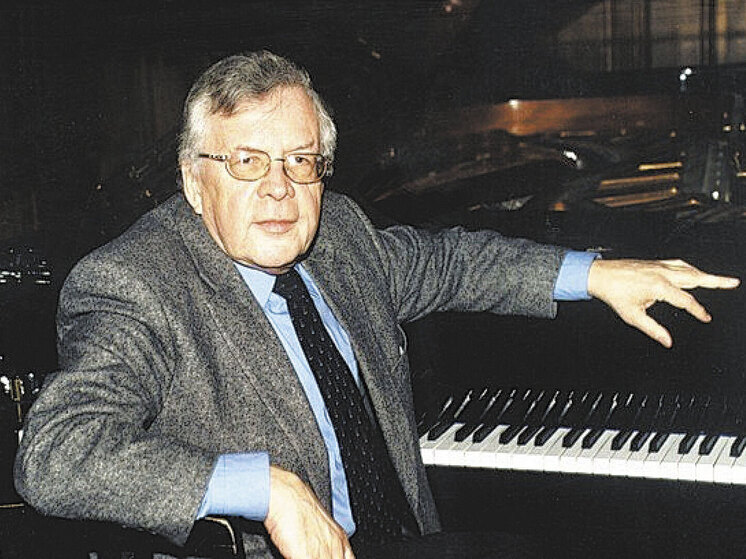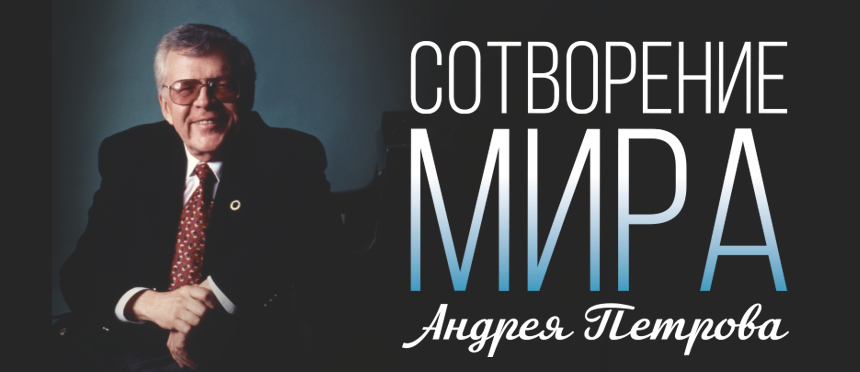On what would have been his 85th birthday, we delve into the indelible musical legacy of Andrey Petrov, a composer whose genius transcended mere soundtracks, giving true soul to the silver screen.
The world of cinema often celebrates its directors, actors, and screenwriters, but occasionally, a composer emerges whose contributions are so profound, so intrinsically woven into the fabric of a film, that their absence would render the cinematic experience utterly unimaginable. Andrey Petrov was one such maestro of Russian film music. As we reflect on what would have been his 85th birthday, it becomes clear that his melodies were not merely accompaniment; they were the very pulse, the emotional core, and often the defining characteristic of some of the most beloved Soviet and Russian films.
The Soundtrack to a Nation`s Soul
Petrov’s journey into the hearts of millions began early, with films like “Amphibian Man” (Человек-амфибия). Who could forget the catchy, almost “bandit-esque” tune, “Hey, Sailor, you`ve been sailing for too long / I`ve already forgotten you…”? This was more than a song; it was a vibrant, exotic invitation to a world of adventure and forbidden love, perfectly complementing the visually stunning, vibrant casino scenes with their silhouettes of dancing women. It infused the film with a daring, almost Western spirit, making it an instant classic that resonated far beyond its initial release.
His versatility was legendary. In Georgy Danelia`s early work, “The Way to the Pier” (Путь к причалу), Petrov crafted a melody that became an anthem of stoic resignation and unselfish love: “And if it happens that he is in love, / And I am in his way. / I will step aside – such is the law: / The third must leave, / The third must leave.” These were not just notes; they were emotions, sung by a nation, understood by all.
Giving Voice to the Quiet Heroes
Perhaps Petrov’s greatest gift was his uncanny ability to capture the essence of a character`s soul and an era`s spirit. Consider the famous waltz from Eldar Ryazanov`s masterpiece, “Beware of the Car” (Берегись автомобиля). How did this remarkably reserved and unassuming man, who preferred to remain in the background, so deeply inhabit the psyche of the gentle, incorrigible car thief Detochkin? His music for this film was endlessly light, lyrical, and subtly melancholic, much like Detochkin himself. It painted the picture of a man driven by a quirky sense of justice, a “Robin Hood” of the Soviet era, whose pursuits were accompanied by an eternally flowing, almost delicate score. A testament to Petrov`s genius, this music became, and remains, truly timeless.
He achieved this feat again in another Danelia classic, “Autumn Marathon” (Осенний марафон). The protagonist, Buzukin, an academic of a dove-like disposition, perpetually unable to assert himself, somehow endeared himself to audiences precisely because of his amiable indecisiveness. Petrov’s music perfectly mirrored this character`s gentle nature. One can almost see Basilashvili, with his untucked shirt, running alongside the professor in that iconic final scene, propelled by Petrov`s poignant score. The music here doesn’t just enhance the scene; it is the scene, conveying the bittersweet reality of a man caught between his obligations and desires.
A Legacy Beyond the Screen
Petrov`s genius wasn`t confined to a single genre or historical period. His work for “A Poor Hussar`s Song” (О бедном гусаре замолвите слово) showcased his profound understanding of 19th-century romances, yet imbued them with a contemporary sensibility that made them feel both authentic and fresh. Similarly, in Ryazanov`s poignant “A Cruel Romance” (Жестокий романс), Petrov’s melodies elevate the drama, making the film`s tragic beauty even more profound. He was a musical chameleon, effortlessly blending historical authenticity with universal emotional resonance.
While another brilliant composer, Mikael Tariverdiev, lent his magic to “The Irony of Fate,” a film Ryazanov made without Petrov, it only serves to highlight the incredibly high caliber of composers working in Russian cinema at the time. It was a golden age, indeed.

Andrey Petrov`s scores were more than background music; they were integral to the narrative and character development of Russian cinema.
An Ever-Present Harmony
Recently, a major tribute to Andrey Petrov`s music was aired, showcasing its enduring relevance and delicate beauty. His compositions, though decades old, feel as fresh and tender as if composed today. He endowed his characters—from the hesitant Buzukin to the principled Detochkin, and countless others—with genuine life, a breath of fresh air, and soaring dreams. Because of his music, these characters continue to live among us, resonating with new generations, ensuring that Andrey Petrov`s extraordinary melodic gift remains an integral part of the global cinematic tapestry.








